This academic year, Vanderbilt business students could be found in briefings with executives on Wall Street, making presentations to the senior marketing executives of Fortune 500 corporations, working directly with management of companies outside the United States, studying the workflow in a hospital or examining a LifeFlight helicopter. They could also be found in Silicon Valley conference rooms, on the scene observing how business gets done in South Korea, or even launching their own businesses beside experienced entrepreneurs at Nashville’s Entrepreneur Center.
In each instance, the students’ presence was an expression of business immersions that, per-haps more thoroughly than in any other top-tier business school, are integrated into learning at the Owen School. First conceptualized more than 20 years ago as Wall Street Week immersion trips to New York, Owen’s immersion week activities have expanded to other trips, times and kinds of experiential offerings.
“Intensive learning immersions,” says Dean Eric Johnson, “have become a hallmark of the Vanderbilt Owen experience. They provide context and texture for traditional classes, giving students real-world experiences on which to process and interpret other parts of their learning experience. They represent a key element in our strategy to create a unique and personalized business education.”
“Intensive learning immersions have become a hallmark of the Vanderbilt Owen experience.” Dean Eric Johnson
In recent years, the business school has elevated opportunities for experiential learning in a number of ways. “The immersion experiences are blowing up around the school,” says Steve Hoeffler, associate professor of marketing. “I think we’re at the absolute forefront of this. Other schools don’t do it to the extent we do because it takes too much time and effort.”
Learning by experiencing—going far beyond the classroom to complement theory and case studies through direct engagement with organizations in their own environment—is growing in popularity in the world of business education.
A different type of immersion is also a key element in Vanderbilt University’s newly announced Academic Strategic Plan. The Immersion Vanderbilt Initiative calls for undergraduates to immerse themselves in creative independent projects that give them the opportunity to engage, question and forge change.
Starting with Owen’s founding as the Graduate School of Management, real-world learning has been part of what it means to be a Vanderbilt business student—so much so, in fact, that it could be considered part of the school’s organizational DNA.
Travel to where the industry is
Central to Owen’s stance that learning shouldn’t be limited to classrooms, Vanderbilt MBA students have travel opportunities to experience the workings of an industry from an insider’s perspective.

During Wall Street Week, students specializing in finance or banking head to New York for three schedule-packed days. Those pursuing careers in consulting can join an intensive, one-day trip to Atlanta that features visits to three consulting firms. Students interested in the Dallas area have their own trip. Still others can take the relatively new Tech Trek, which involves four days and two cities on the West Coast to visit technology firms.
Though the groups of 20-30 participants may differ by area of specialization, the trips feature several common elements. They involve visits to firms that are active recruiters for MBAs; meetings in which students interact with executives and engage them in conversations about the company or industry; and seeing a presentation on how MBA talent is used in the firm. In addition, an immersion can last only one day or up to 10. Most, but not all, occur during the fall break between Mod 1 and Mod 2. Three immersions, BrandWeek, Health Care and Entrepreneur Week, take place in Nashville.
“The trips really kick-start the recruiting process,” says Emily Anderson, MBA’99, director of internal operations and coaching, who helps put the trips together. “They introduce students to people who can be helpful in the process and improve their interviewing skills. From the employer’s standpoint, if the students have taken enough time to come visit them, it helps them stand out.”
As one Wall Street Week participant noted, “It’s really important to get face time with these banks, and this is the best way to do it.”
Soak up company culture
Especially in recent years, alumni have become more integral to the immersion trips. Companies on the itinerary generally employ Owen alumni—sometimes alumni even initiate the process—and the school’s team works to schedule alumni receptions whenever possible in cities that student groups visit. “We couldn’t do this without alumni support,” Anderson says. “The trips keep us in touch with some of them, and they really look forward to the visits.”

After she joined Seattle-based online retailer zulily in 2013, Allison Matheson, MBA’10, worked with the school’s Career Management Center to include her company on the November 2014 Tech Trek. The afternoon-long visit to the 5-year-old startup included a presentation, tour and a Q&A session about the company’s business model, challenges and plans. Students also met with the company’s senior managers, along with zulily’s director of retention marketing and vice president of business development.
“I think the company visits are a really good opportunity for both the students and the company,” Matheson says. “The feedback from students was that it was interesting to learn more from an inside perspective. [Since the trip], I already have students reaching out to me and making connections with the appropriate people from our organization.”
On the Tech Trek, says Ryan Shepherd, MBA’15, “we had the opportunity to meet with Owen alums such as Brennan Mullin [MBA’00], the director of Google’s hardware business in the Americas. Shepherd, who holds the E. Bronson Ingram Scholarship, says it was amazing to experience the individual business cultures. “It was particularly insightful to see what it takes to be an industry leader like Amazon, Microsoft or Google versus a scrappy startup just out of Y Combinator,” he says.
Valuable hands-on experience
Closer to home, MBA students pursuing careers in marketing or brand management can take part in BrandWeek, an on-campus immersion event. Over three days, student teams apply their classroom knowledge, research and thinking to devise solutions for actual challenges that specific companies face. In October, for example, they helped Louisville-based Brown Forman develop social media marketing strategies for revitalizing the company’s Southern Comfort brand. On the event’s final day, teams formally presented their ideas to a panel of judges comprised of senior marketing executives from Brown Forman, who chose the winners and offered feedback to each team. To add to the real-time pressure, the students also worked on several minichallenges for Papa John’s and GE at the same time.

BrandWeek, says Hoeffler, who helps orchestrate the event, “gives first-year students hands-on experience that augments what happens in the classroom. Many are career switchers thinking about marketing as a career. When they meet with recruiters, they have a BrandWeek story to tell about their ideas and how they’ve approached the problem. Often, recruiters are facing similar challenges in their own companies, so they’re interested in learning what the students did.”
The immersive approach extends to summer offerings for undergraduates and to one-year, career-launching programs. In the 30-day Accelerator Vanderbilt Summer Business Institute, teams of college students and recent grads—like their MBA-candidate counterparts during BrandWeek—take on real projects for real companies and present their ideas to the organization’s executives. And in Vanderbilt’s MAcc, MAcc Valuation and MS Finance programs, students undertake immersions in the form of internships that are built into the academic year.
Scrubbing in
But nowhere are immersion experiences more fully realized than in the school’s distinctive Health Care MBA program. During fall break, new students in the program go through an intensive immersion week at Vanderbilt University Medical Center.
The 35 to 40 Health Care MBA students split into shifts to see multiple facets of health care operations firsthand. They may spend a shift in the emergency room, observe a surgery in progress, interview LifeFlight teams, visit the catheterization lab, or shadow nurses to understand how they spend their time. Among other experiences, students may engage in roundtable discussions with panels of nurses and physicians to get their perspectives on the field today and how it has changed. They’ll go into Nashville’s dynamic health care community to meet with executives at major companies such as Community Health Systems.
“Very few businesspeople step back and look at health care processes through the eyes of a patient or provider,” says Larry Van Horn, associate professor of management and executive director of health affairs. “So for our students we compress into one week as much as we can before they formally begin studying the business.”
Students also journal throughout the immersion and go through several debriefs during the week on what they have experienced. “We challenge students to observe from a business viewpoint—tracking medications and devices, interacting sometimes with medical staff,” Health Care Program Director Scarlett Gilfuss says.
“It’s a busy week, but it’s a terrific experience,” Van Horn says. “I’m not aware of any MBA program among the top 50 that has anything like this.”
Van Horn could be speaking not just about the Health Care MBA but the totality of such experiences at Vanderbilt, which remains well ahead of the curve in providing immersion opportunities. Johnson points out that Owen’s modular course structure allows for many short, immersive experiences. Even so, the deeper advantage, he suggests, involves consistent intentionality.
“Immersions are an important element of all our programs,” he says, “because we’re focused on building leaders.”
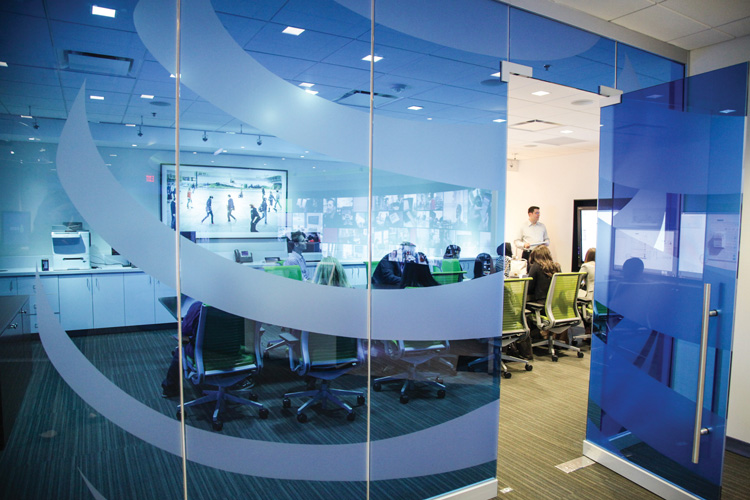
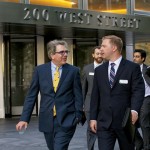



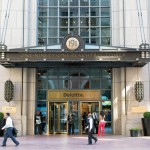


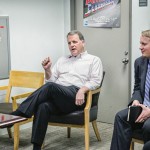
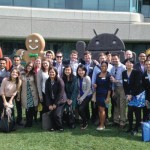


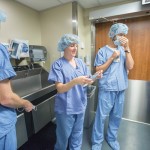
Leave a Reply